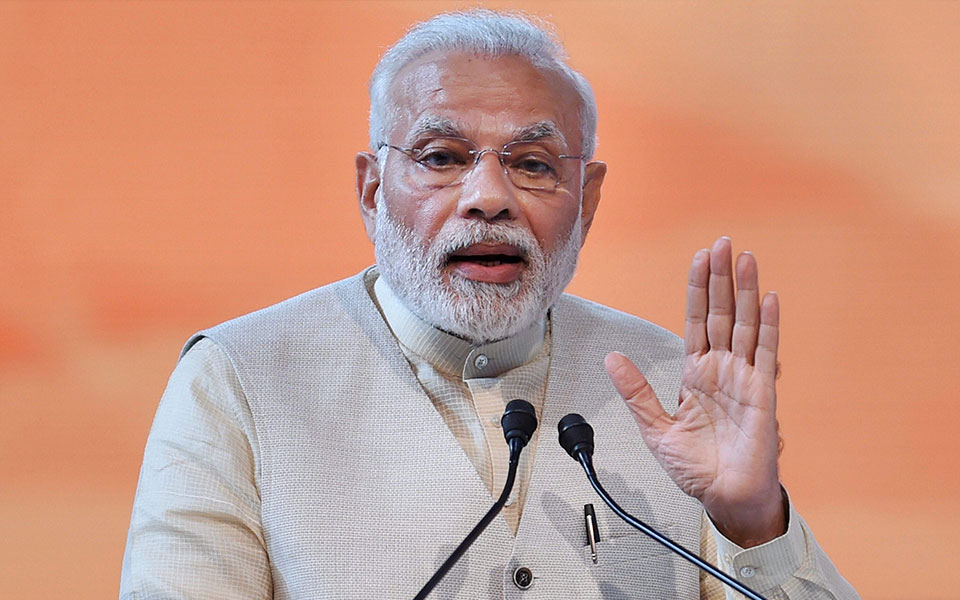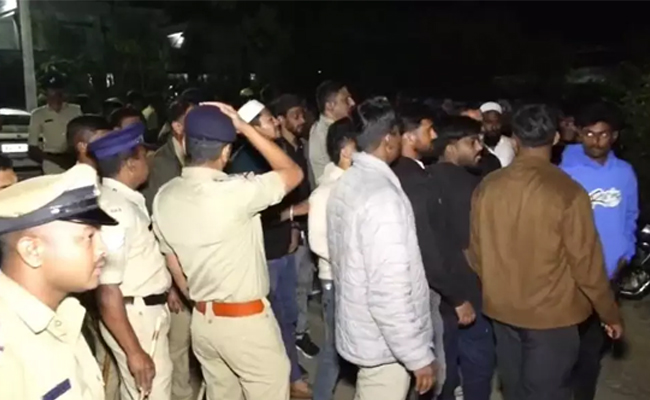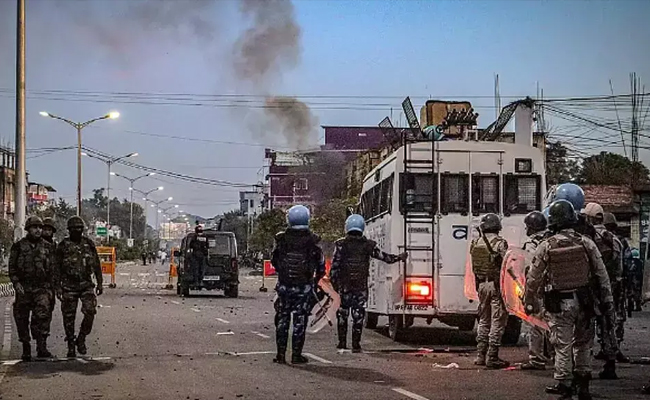Motihari (Bihar), April 10: Amid nationwide protests by Dalits after a Supreme Court order allegedly diluting the Scheduled Caste/Scheduled Tribes Atrocities Act, Prime Minister Narendra Modi on Tuesday accused the opposition of dividing the country.
"They (opposition) are creating hurdles in the work of the government from the streets to Parliament. Today you have a government at the Centre which is working to unite the people of the country while the opposition is working to divide the people," Modi told the National Convention of 'Swachhagrahis' here.
Eight persons were killed and dozens injured during Dalit protests on April 2 turned violent following a Supreme Court order that dilutes a law aimed at preventing atrocities against Dalits and Tribes.
Tuesday's event was organised as part of the centenary celebrations of the Satyagraha led by Mahatma Gandhi in Champaran.
Hitting out at the former UPA government led by the Congress for delaying projects, the Prime Minister said his government was completing all its mission and commitments with the cooperation of the people.
Describing the Madhepura Electric Locomotive Factory as a prime example of Make in India and a source of employment in the region, he said work on the project was first approved in 2007 but it began only three years ago when the NDA government came into the power.
On Tuesday, the first engine rolled out of the factory.
"This is the style of working of this government. 'Ab atkane, latkane and bhatkane wala kaam nahin hota'. Now the culture of stopping files is not there. The government is committed to fulfil all its mission," he said.
He said the changes brought in the society through development works had created problems for the opposition and they were unable to accept this.
"They cannot see the poor getting empowered. They feel if the poor are strengthened, then they (opposition) will not be able to speak lies. They will not be able to fool them," he said.
The Prime Minister showered praise on Bihar Chief Minister Nitish Kumar for his patience and able administration in fighting corrupt and anti-social forces.
"It is not so easy," he said, adding that the Centre extended its full support to the efforts of Nitish Kumar in fighting against corruption and his efforts towards sanitation drive for social change.
On the occasion, the Prime Minister launched several important development projects. He unveiled a plaque to mark the foundation stone of Motijheel Project, the Bettiah Nagar Parishad Water Supply Scheme and four Ganga Projects.
Modi laid the foundation stone for the doubling of railway lines between Muzaffarpur and Sagauli as well as between Sagauli and Valmikinagar.
He dedicated the first phase of the Madhepura Electric Locomotive Factory to the nation. Via video link, he flagged off the first 12,000 HP Freight Electric Locomotive, and the Champaran Humsafar Express.
The Prime Minister also laid the foundation stone for a road lane of NH-2 in Aurangabad Bihar-Jharkhand border section and distributed awards to Champion Swachhagrahis from across the country.
Mahatma Gandhi launched the Champaran Satyagraha on April 10, 1917 against the British to fight for the rights of farmers who were forced to undertake indigo cultivation.
Let the Truth be known. If you read VB and like VB, please be a VB Supporter and Help us deliver the Truth to one and all.
Chikkamagaluru (Karnataka) (PTI): Tension gripped the Vijayapura area of Chikkamagaluru late Monday night following allegations of stone-pelting, triggering protests by members of two communities and heavy police deployment.
Allegations surfaced that some youths from a community had pelted stones at houses over the past week and harassed girls for the last three days, leading to outrage among local residents, police said.
According to police sources, two youths who were found moving in a suspicious manner were caught by activists of an organisation, beaten up and later handed over to the police. Soon after, hundreds of youths from both communities gathered in front of the Basavanahalli Police Station and the government hospital, creating a tense atmosphere.
While one group claimed they were not involved in stone-pelting, another group demanded strict action against those responsible for the attacks on houses and alleged harassment.
Police, who were alerted in advance, rushed to the spot and dispersed the crowd.
Authorities said they struggled for some time before bringing the situation under control. Tight security was in place across the city.
Meanwhile, the two injured youths are undergoing treatment at the government hospital.





